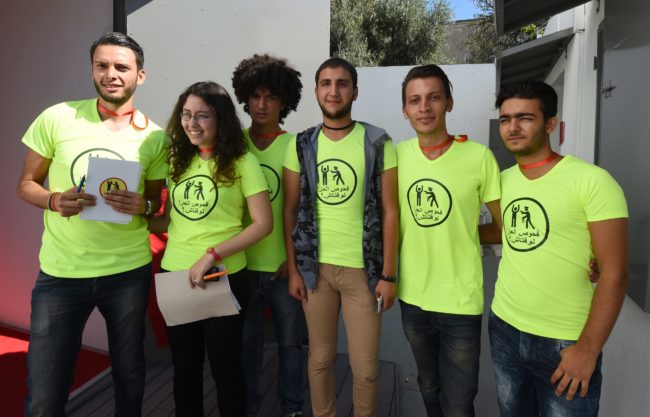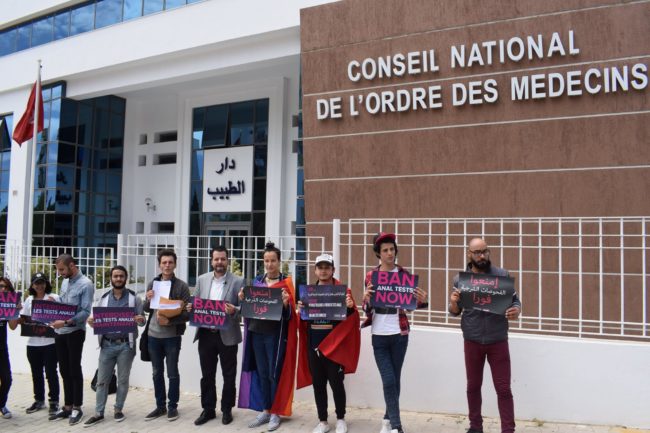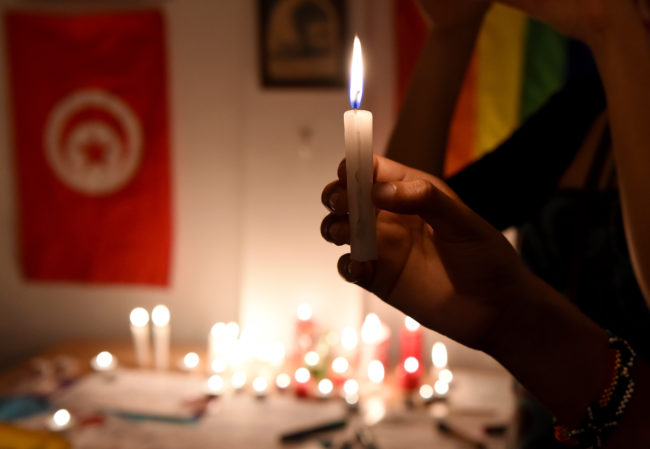Anal tests could finally be banned in Tunisia

(Shutterstock)
A Tunisian politician has announced her intention to introduce legislation to officially ban anal tests in the country.
Lawmaker Khawla Ben Aicha expects to propose changes to Article 230 of the country’s penal code, a remnant of French colonial rule which punishes same-sex physical relationships with up to three years in prison, in early November.
The politician tells PinkNews she hopes the proposed ban on anal tests, with a focus on respect of bodily integrity and individual freedoms, will have a larger chance of being approved than repealing the law altogether to decriminalise homosexuality—although that remains the final goal.
“Obviously, the aim is to introduce a broader debate around the issue, with the priority of stopping these barbaric tests and implicitly making Article 230 obsolete,” she said.
In September 2017, Tunisia accepted a number of UN recommendations on improving the state of human rights in the country, including the immediate end to the practice of forced anal examinations—but no official ban has since been established.

Members of Tunisian “Shams” association for the decriminalisation of homosexuality pictured in September 2015. (Fethi Belaid/AFP/Getty)
Anal tests are a procedure mostly carried out on those arrested under the country’s anti-gay laws. Authorities claim the invasive and humiliating procedure can reveal whether someone has been involved in homosexual activity—but forensic experts dispute the claims as unscientific.
The issue of anal tests has been the focus of local and international LGBT+ rights campaigners for years. In 2015, the case of a 22-year-old man sentenced to a year in jail after the court forced him to undergo anal examination attracted widespread condemnation. He was eventually released after two months, but still holds a criminal record.
Tunisia’s National Council of the Medical Order eventually criticised the practice of anal examinations in a statement in April 2017, inviting doctors to remind those they are requested to examine of their right to refuse the test.
But activists from the Tunisian organisation Shams and the All Out campaigning group want the association to completely ban forced anal examinations and punish all doctors who practice them. The activists delivered more than 45,000 signatures in support of their demands to the National Council of the Medical Order in May 2017.

LGBT+ activists campaign for a ban on anal tests in May 2017. (Shams – Pour la dépénalisation de l’homosexualité en Tunisie/Facebook)
Shams’ president Mounir Baatour tells PinkNews that Ben Aicha’s bill would help decrease the number of convictions for homosexuality, which amounted to 79 in 2017 and 53 so far this year, as well as respecting the UN’s opinion that anal examinations are an act of physical and psychological torture.
“The bill on the ban on anal testing is an advancement for the LGBT+ cause in Tunisia,” Baatour says. He adds, however, that the bill would not to tackle the negative view of homosexuality persistent in the country’s courts.
“In practice, the judges condemn [a person’s] sexual orientation, and not just the act of sodomy. Shams’ main demand remains the total abolition of Article 230 and the decriminalisation of sexual relations between consenting same-sex adults,” he says.
AllOut pledged to stand by Shams to achieve this goal. “All Out members have repeatedly called on Tunisian authorities to end the horrifying practice of anal testing and punish all doctors who practice them,” Yuri Guaiana, AllOut’s senior campaigns manager, tells PinkNews.
“This bill gives Tunisia a chance to keep the promise made at the United Nations to put an end to this horrible practice. We’ll keep working with our partners on the ground to make sure they keep their word,” he adds.

Tunisians belonging to the Tunisian association for justice and equality light candles and on June 14, 2016 in Tunis. (Fethi Belaid/AFP/Getty)
Tunisia was the birthplace of the so-called Arab Spring, with protests dubbed the Jasmine Revolution managing to overthrow dictator Zine El Abidine Ben Ali in January 2011. A democratic system of representation has since been established in the country.
While democratic rights have been slow to affect the LGBT+ community, an increasing number of political figures have been advocating for lifting the ban on homosexual acts.
In June, a commission led by the President of Tunisia, Beji Caid Essebsi, called for the decriminalisation of homosexuality as well as the removal of the death penalty and equal rights for women.

